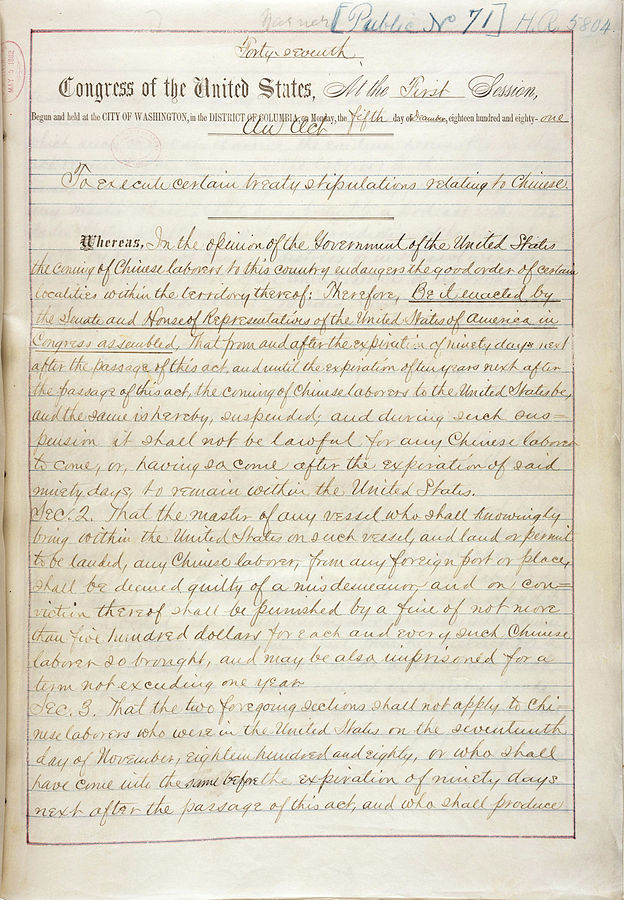Why We’re Still Fighting for the Equal Rights Amendment
October 09, 2024
By Ava Lee-Green

The Model Minority Myth boils down to expectations. By focusing on particular indicators of “success”, positive stereotypes are seemingly created about Asian Americans. Think: hard workers who have succeeded at achieving the American Dream and have children studying to become lawyers, engineers, or doctors. It paints a picture that impacts how both Asian Americans and other minority groups move throughout the world.
The Model Minority Myth has roots in the 1940s when the Chinese Exclusion Act was repealed, and has only evolved since then. Due to the U.S.’s racist foundations, the government and the public began comparing the so called “problematic” minorities to the seemingly hard-working and self-reliant Chinese and Japanese communities. As the U.S. started to loosen its immigrant quotas, the system gave preference to “skilled” Asian workers, which not only created a population of highly trained Asians in the country, but erected barriers for poor and working-class immigrants.
Today, the Model Minority Myth is as prevalent as ever. With foundations in the scarcity mentality (the belief that there are limited resources and society must compete to survive), it is clear how the myth can create divisiveness and competition, especially during the Covid-19 pandemic and the current political and economic climate of the world.
It can be difficult to try and find your place in the world with everyone around you consciously or subconsciously expecting you to be the best. In Asian households, it is common for parents to set their own high expectations for their children to do well in school, go to university, and get high-paying jobs. With everyone around you expecting you to succeed, it is easy to begin comparing yourself to others and be harsh on yourself when you do not live up to the excellence that others seem to expect of you. These three forces combined can be extremely damaging to a person's mental health.
The challenges faced by the Asian community should not overshadow those of other minority communities. As the “model minority” Asians have essentially become the standard that other minorities are expected to achieve. Yet, these communities often lack the support to do so. The systemic implications of the Model Minority Myth create competition amongst minority groups that undermines the fight for equality for all.
